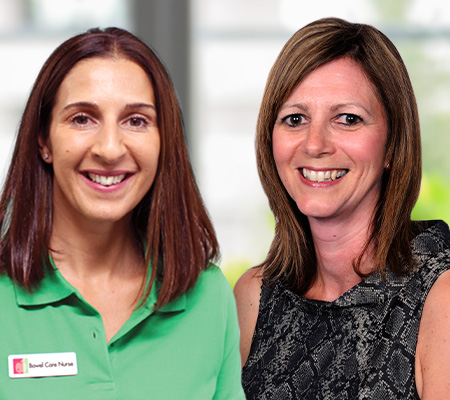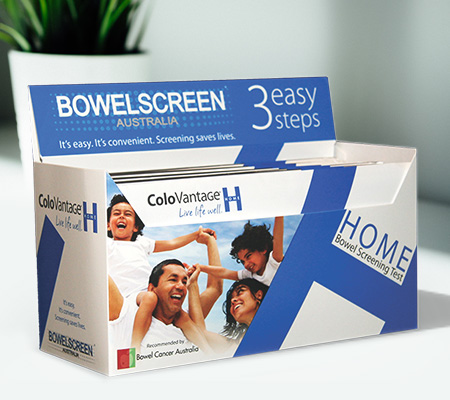Managing your follow-up | Survivorship care plan | Cancer treatment summary | Side effects of cancer treatment | Returning to work
Waiting for scans and other test results can be a very anxious time. It’s very normal to be stressed during this time and it can be very unsettling, even if you have experienced the same tests on previous occasions. You may experience ‘butterflies in your tummy’, a change in bowel habit, loss of appetite and other signs of anxiety. You may also feel more irritable or tired.
These symptoms can make you more anxious, especially if the physical response leads you to think this is linked with symptoms caused by your cancer coming back.
It’s important to have a strategy for occasions like this, a plan of action to give you more control over your everchanging emotions and to better fill your time with practical ways of coping. This won’t necessarily take away the anxiety completely, but allows the experience to be less traumatic. It does take some effort and self-discipline.
You may experience changing emotions where one day you want to share and talk, and the next you want to completely banish all thoughts of cancer. Being mindful of this will help you choose your coping strategies, depending on your mood. Your loved ones may need some indication of this so that they can try and support you in the best way possible.
Unfortunately, there is nothing you can change in terms of your test result. Waiting can feel like an eternity, and the desire to know now can leave you helpless and
frustrated. However, you can have some control.
frustrated. However, you can have some control.
There may be things you can do to make this time more bearable:
- Seek support from friends and family who will listen and allow you to talk.
- Talking through your concerns with a Bowel Care Nurse or Oncology Social Worker can help you offload with someone very used to discussing these worries.
- Let your specialist or GP know if you feel your anxieties are overwhelming you. They can help, maybe with temporary medication or by offering you extra support such as counselling.
- Find a support group, such as our Peer-to-Peer Support Network to share your thoughts.
- For some people, having a practical plan of action can be helpful. In the event of the news being bad, what do you plan to do? How will you cope? What concerns you the most… is it the thought of another round of treatment, or your job and paying bills if you are too ill to work? Sometimes breaking these fears down into chunks and dealing with them one by one can be helpful.
- Beware of too much internet advice. Your health is truly unique to you; trying to find out your result through the experience of others may actually confuse you and make your anxiety worse. For some, surfing the web can be really helpful, but if it makes you anxious, you may well want to avoid it for the time being.
Distraction techniques
- Distract yourself with something that requires a lot of concentration: an intricate brain activity like detailed sewing or Sudoku.
- Meditation or mindfulness training can be very calming, especially if your anxiety is preventing you from sleeping at night. You can download a meditation tape from YouTube or borrow one from your local library. Your GP practice may know about courses available locally.
- Be active – If you are able, get out and do a physical activity. Gentle walking, yoga, dancing, anything to help release some of your body’s natural endorphins - ‘feel good’ chemicals which can improve your mood, memory and energy.
- Have fun – Spend time with friends or family who lift your mood, tell you jokes and help to brighten your day. Do something different and inspiring or something that makes you laugh.
Getting the news
- It’s helpful to write down a list of questions before the appointment so you don’t forget to ask anything.
- Bring support - It can be really useful to have someone with you when you are receiving your results. They will also be able to take down notes from the discussion you have with your doctor or nurse.
- Whatever the outcome, this news will no doubt leave you feeling quite emotional. It’s important to take time to absorb the news. You may not be in a fit state to work straight after an appointment like this, even if good news means you want to jump for joy.
- Before you leave the appointment, make sure that you ask your specialist how you can contact them if you have any further questions that come to mind. Check that you will be sent a written account of the discussion for your records.
- Keeping a file with all your test dates and communications from your medical team may be useful.
General follow-up guidelines
Follow-up tests are put in place over a five year period.
They can either reassure you that you are still clear of cancer or pick up any recurrence at the earliest possible opportunity so that treatment options can be considered.
Medical guidelines suggest that patients with primary bowel cancer who have had treatment to cure their cancer should be reviewed at 3- to 6- monthly intervals for the first year; 6-monthly for the next two years and then yearly for a total of 5 years.
Patients should be offered regular follow-up tests which should include:
- CEA (blood) tests at each consultation;
- an annual CT scan; and
- a colonoscopy 12 months after surgery (or 6 months at the latest after if the patient did not have a complete colonoscopy prior to surgery).

| Survivorship care plan
Survivorship Care Plans (SCPs) are emerging as one element of an improved and more coordinated approach to survivor care.
Survivorship Care Plans are formal, written documents that provide details of a person's cancer diagnosis and treatment, potential late and long-term effects arising from the cancer and its treatment, recommended follow-up, and strategies to remain well.
The Institute of Medicine (IOM) recommends that everyone who completes primary treatment for cancer receive a comprehensive care summary and follow-up plan.
A Survivorship Care Plan is one way to try to ensure a consistent, coordinated management plan and flow of information, to help ensure good survivorship outcomes.
The plan should include information about:
Survivorship Care Plans are formal, written documents that provide details of a person's cancer diagnosis and treatment, potential late and long-term effects arising from the cancer and its treatment, recommended follow-up, and strategies to remain well.
The Institute of Medicine (IOM) recommends that everyone who completes primary treatment for cancer receive a comprehensive care summary and follow-up plan.
A Survivorship Care Plan is one way to try to ensure a consistent, coordinated management plan and flow of information, to help ensure good survivorship outcomes.
The plan should include information about:
- the cancer for which the survivor received treatment, and the type of treatments they received
- short-term and long-term effects of treatment: what to be alert for and how frequently to visit the doctor for checkups and screening (including information about psychosocial effects)
- how the survivor's follow-up care will be coordinated between the oncology specialist, GP, nurse specialists, etc., and who to contact inbetween follow-up appointments and when you should have them
- lifestyle changes needed to reduce the risk and severity of treatment side effects, prevent comorbid conditions and promote better health (including information about diet, smoking, alcohol, obesity and overweight, exercise and sun protection)
- describe ways to manage physical and mental health
- useful community resources should the survivor encounter employment and insurance issues
The American Society of Clinical Oncology (ASCO) has developed a Survivorship Care Plan template which has been updated by Bowel Cancer Australia for patients within Australia. It contains important information about the given treatment, the need for future check-ups and cancer tests, the potential long-term late effects of the treatment you received, and ideas for improving your health.
Please note it is not intended to provide a complete medical record as no single survivorship care plan is appropriate for all patients due to the complexity of cancer care. Talk with your specialist for more information about your individual treatment and follow-up care.
Please note it is not intended to provide a complete medical record as no single survivorship care plan is appropriate for all patients due to the complexity of cancer care. Talk with your specialist for more information about your individual treatment and follow-up care.
| Cancer treatment summary
A Cancer Treatment Summary is a form that provides a convenient way to store information about your cancer, cancer treatment, and follow-up care. It is meant to give basic information about your medical history to any doctors who will care for you during your lifetime.
Using the treatment summary, your current oncologist can enter the chemotherapy dose you received, the specific drugs that were used, the number of treatment cycles that were completed, surgeries done, and any additional treatment that was given, such as radiation therapy or hormonal therapy.
The Cancer Treatment Summary should include information that:
- Describes your cancer diagnosis
- Describes medical treatments you received or are receiving
- Helps you talk with health care professionals who were not part of your cancer care team
- Gives you a record of your cancer treatments
The American Society of Clinical Oncology (ASCO) has developed a Cancer Treatment Summary template which has been updated by Bowel Cancer Australia for patients within Australia.
Please note it is not intended to provide a complete medical record as no single cancer treatment summary is appropriate for all patients due to the complexity of cancer care. Talk with your specialist for more information about your individual treatment and follow-up care.
Please note it is not intended to provide a complete medical record as no single cancer treatment summary is appropriate for all patients due to the complexity of cancer care. Talk with your specialist for more information about your individual treatment and follow-up care.
Physical issues
Even after cancer treatment ends, you may have some physical side effects. The kind of side effects you have and how long they last will depend on the treatment you received. By being aware of the common side effects of cancer treatment, you can work with your doctor to help them.
They might include:
- Fatigue
- Pain
- Problems fighting infection
- Lymphoedema (swelling of arms or legs)
- Memory loss or trouble concentrating
- Changes in sexual function or fertility
- Nerve problems such as numbness and tingling
- Bone and joint problems or muscle weakness
- Skin changes
- Secondary cancers
- Anaemia
Emotional and social issues
Cancer affects much more than just your physical health. There is often stress along with a cancer experience, and it does not always end when treatment ends. In fact, those feelings may increase for some people after treatment.
Cancer affects much more than just your physical health. There is often stress along with a cancer experience, and it does not always end when treatment ends. In fact, those feelings may increase for some people after treatment.
Areas of concern may include:
- Going back to work after a long time away
- Dealing with financial concerns
- Rebuilding relationships with friends and family
- Establishing a new 'normal' and returning to day-to-day life
- Feeling uncertain about the future
- Coping with fears of cancer returning
After treatment is over, there are a number of things you can do to stay healthy and reduce your risk of heart attack, stroke, and even other cancers.
- Avoid smoking cigarettes and using other tobacco products, such as chewing tobacco or cigars
- Limit the number of alcoholic beverages to no more than 1 drink a day for women and 2 drinks per day for men, if you drink at all
- Be physically active to help stay healthy and reduce stress
- Eat a healthy diet with more fruits and vegetables and less red and processed meats
- Maintain a healthy weight
- Protect your skin from exposure to ultraviolet radiation from the sun, sunlamps, and tanning beds
- See your GP and dentist for regular checkups

| Returning to work: What you need to know
Many cancer survivors are able to continue working through and beyond their treatment. They may miss only a few days of work or require just a temporary adjustment in their work schedules. Others may have to stop working during treatment and return later. Whether you continue to work may depend on your workplace.
Many organisations are supportive of employees during and after treatment. For example, some employers proactively let their employees know what options are available if they want to continue working. However, sometimes employers and co-workers may assume that a cancer survivor is unable to perform job responsibilities as well as they did before the cancer diagnosis.
It is important to know the laws that protect you in the workplace including the Australian Disability Discrimination Act which prohibits discrimination against people with disabilities (cancer is included in the definition of disability as a malfunction in part of a person's body).
A cancer survivor who is discriminated against because they previously had cancer, or because they are wrongly thought to still have cancer, or because they may develop cancer symptoms again in the future, is also covered since the Disability Discrimination Act includes discrimination based on past, imputed or future disabilities.
People living with and beyond cancer often need flexible work hours in order to go to medical appointments. Sometimes, restructuring a job or reducing the number of hours you work may be considered reasonable, especially if you work through treatment or plan to return to the workplace after treatment ends.
If you require flexi-time, it is important to tell your supervisor or your human resources department about your cancer history. For more information visit Fair Work Australia.











